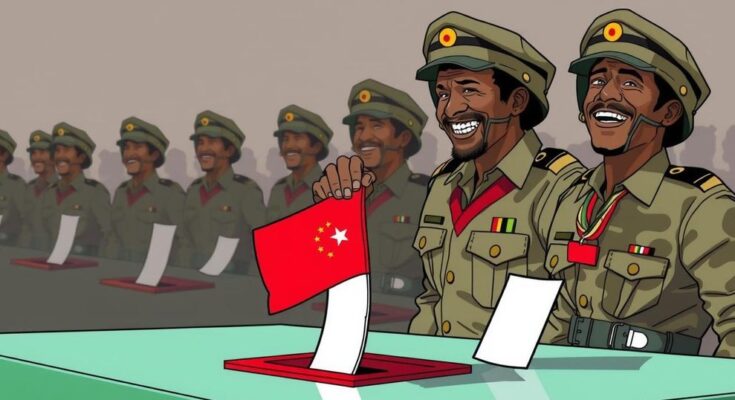Chadians voted in parliamentary elections with low turnout amid opposition boycotts claiming a lack of credible oversight. This marks Chad’s first parliamentary election in over a decade, following a military transitional period. Key issues focus on establishing a sustainable democracy while facing security challenges.
Chadian citizens participated in parliamentary elections on Sunday, experiencing notably low voter turnout. This event marks the conclusion of a three-year transitional phase following military governance, although the main opposition parties boycotted the elections, alleging a lack of oversight for a credible electoral process. The current vote is significant as it is Chad’s first parliamentary election in over a decade, occurring after the contentious presidential election that saw junta leader Mahamat Idriss Deby, who succeeded his father after his death in 2021, remain in power amid concerns of maintaining a dynasty.
Despite the formation of new local and national assemblies, voter participation seemed sparse in the capital, N’Djamena, prompting criticism from opposition figures who labelled the elections a “charade.” Over ten opposition parties, including the prominent Transformers party, have actively refused to partake in this electoral process. Tensions are compounded by ongoing security challenges from militant groups, further destabilizing the political climate. Experts argue the key issue at stake is ensuring a sustainable democracy amidst these ongoing transitions.
Chad has faced a turbulent political landscape since gaining independence from France in 1960, with numerous instances of unregulated governance and military rule. The present situation follows the death of long-time president Idriss Deby, leading to the establishment of a transitional military government under his son, Mahamat Idriss Deby. The military regime’s latest elections have been questioned for their transparency, with significant opposition resistance that stems from a history of political manipulation and suppression of dissent. The nationwide parliamentary elections are crucial as they represent a pivotal point in Chad’s fraught journey toward democratic governance, especially following extensive delays in the electoral process.
In summary, the parliamentary elections in Chad represent a significant yet contentious step towards concluding military rule. With a low voter turnout and widespread opposition boycotting the elections, questions remain about the future of democracy in the country. The call for credible electoral oversight and the commitment to a democratic transition are vital as Chad faces pressing security challenges and the ramifications of a prolonged military oversight.
Original Source: apnews.com




